CAPE INFERNOS
House burns down, roads closed as firefighters battle blaze in Kalk Bay

Firefighters on Monday fought to contain a blaze on Trappieskop in Kalk Bay, Cape Town, that extended towards St James and spread across Boyes Drive.
The fire started just south of where the previous Kalk Bay fire, on 17 January, began. Monday’s fire spread towards residential properties with firefighters hard at work to keep the flames at bay.
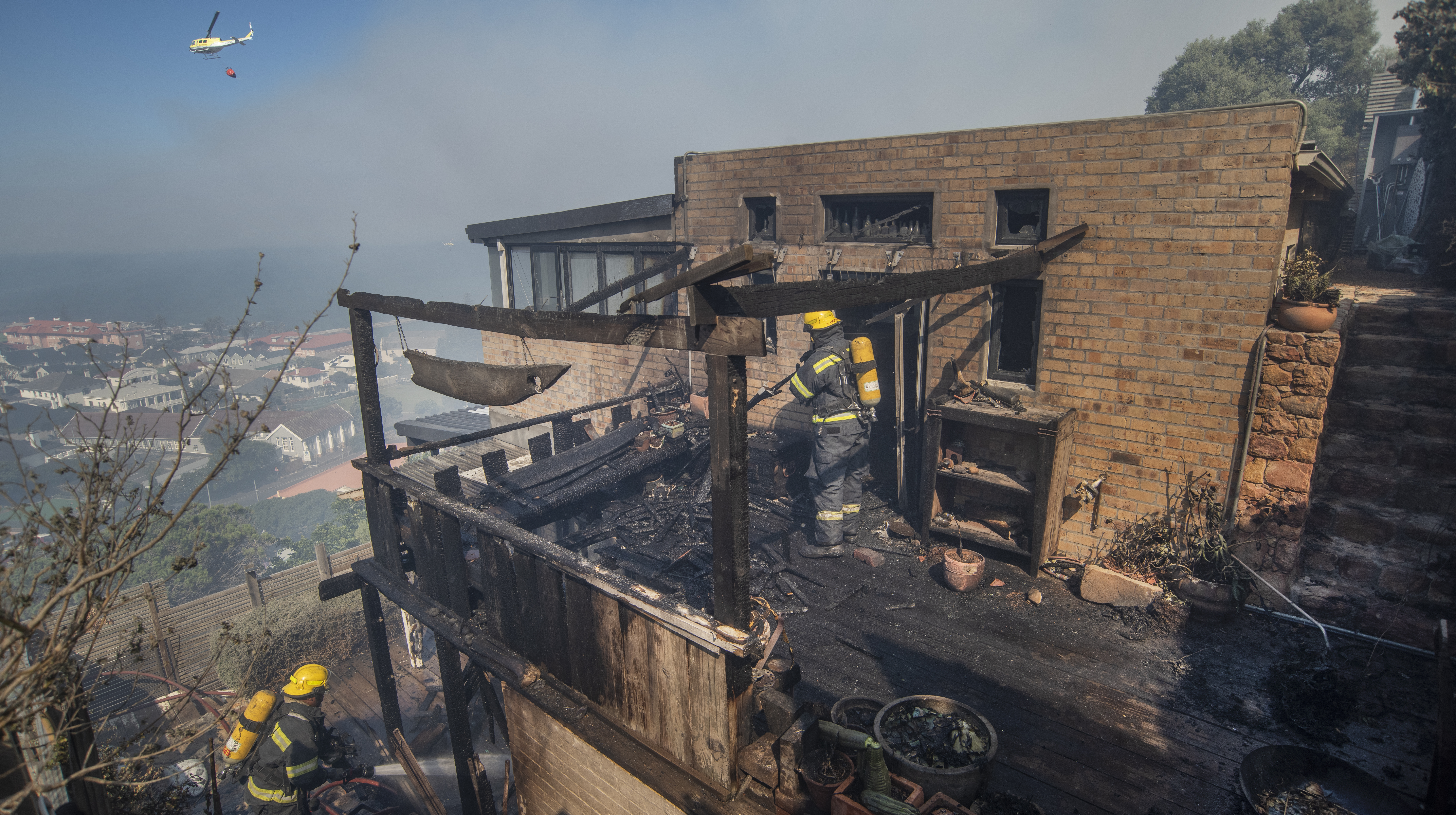
This house, situated just below the firebreak in Kalk Bay, was extensively damaged by the raging fire. (Photo: Brenton Geach)
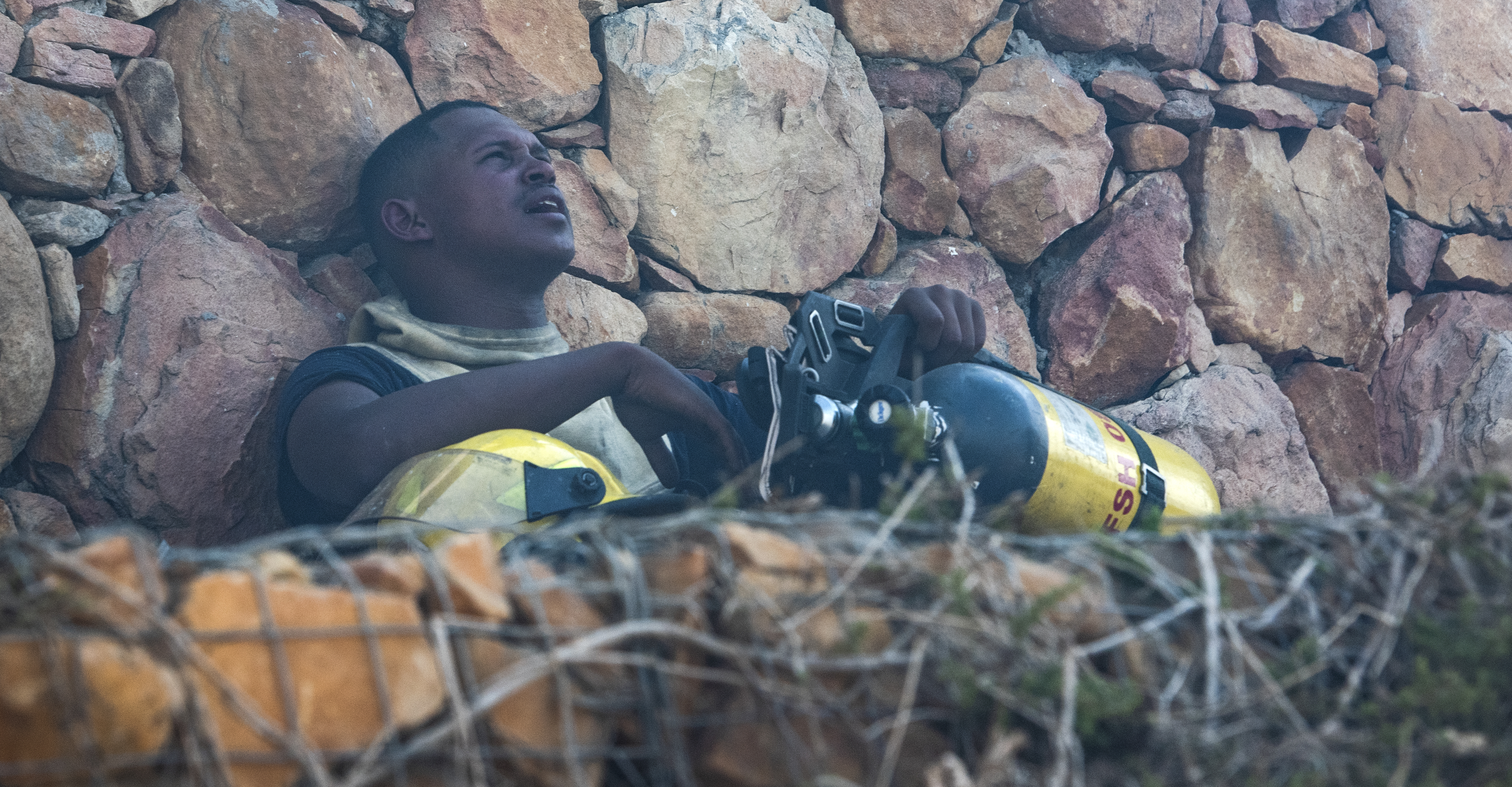
An exhausted firefighter takes a quick break on the road. (Photo: Brenton Geach)
A house burnt down in Lock Road, Kalk Bay — the occupants were away at the time — while another house was damaged. The City of Cape Town’s Fire and Rescue Services spokesperson, Jermaine Carelse, said, “No persons have been evacuated from their homes as crews are strategically placed to cover the residential area.”
The fire was fuelled by dry and hot conditions including unusually hot winds. More than 40 firefighters were on the ground, battling to contain the blaze, while four helicopters, assisted by a spotter plane, water-bombed it. At 5pm, they were still hard at work.
Boyes Drive and Old Boyes Drive, Kalk Bay Main Road and Clairvaux Road were closed to traffic.
Carelse reported that after 8pm, the fire had mostly been contained, but active firefighting efforts were ongoing with ground crews tirelessly working on the fireline throughout the night.
The aerial support had been providing crucial aid to the ground teams, with 20 firefighting resources now deployed across the fire area. Carelse further mentioned that the Incident Command Post had been established at Kalk Bay Harbour to offer strategic assistance.
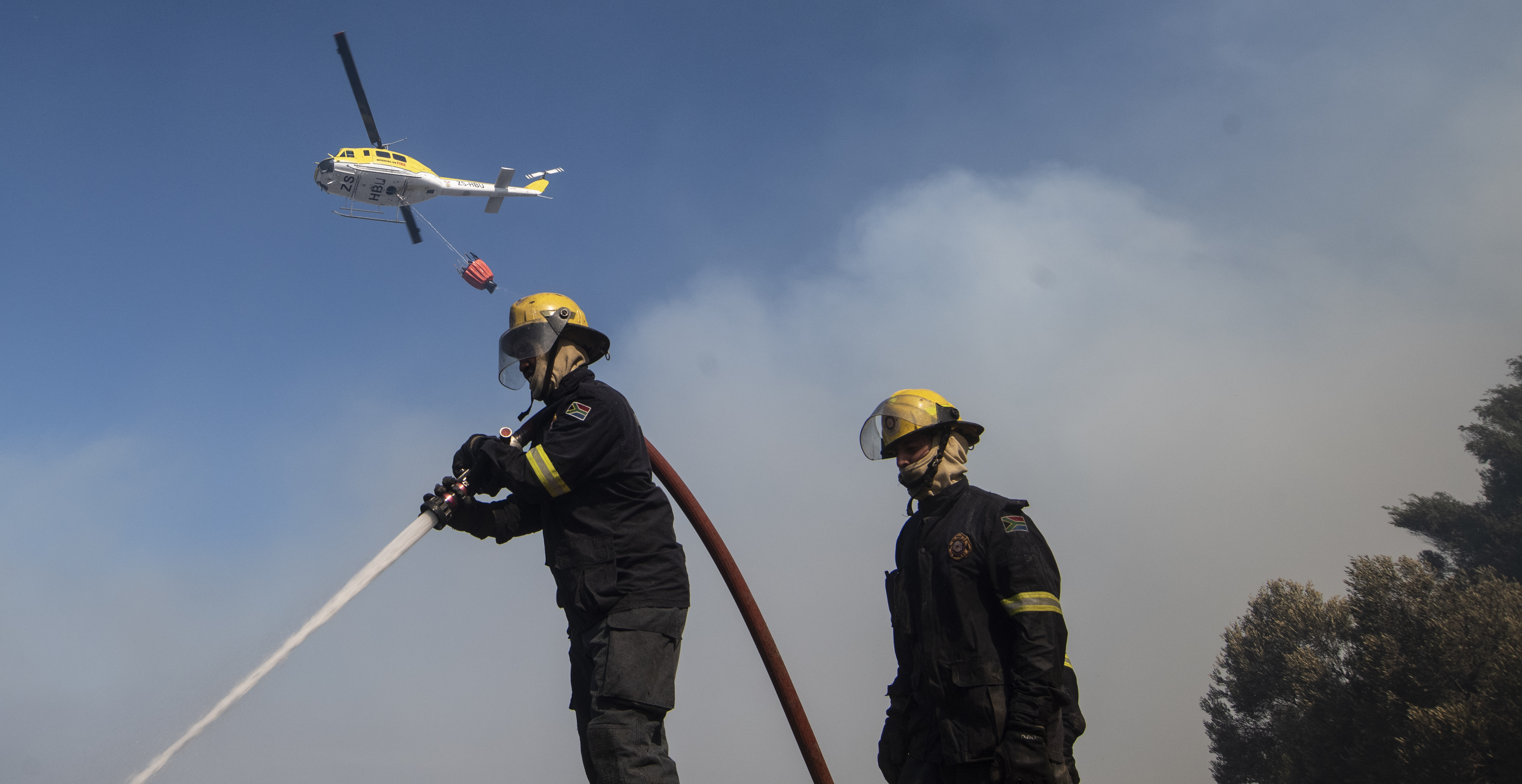
Firefighters and four helicopters managed to prevent the fire from crossing Boyes Drive. (Photo: Brenton Geach)
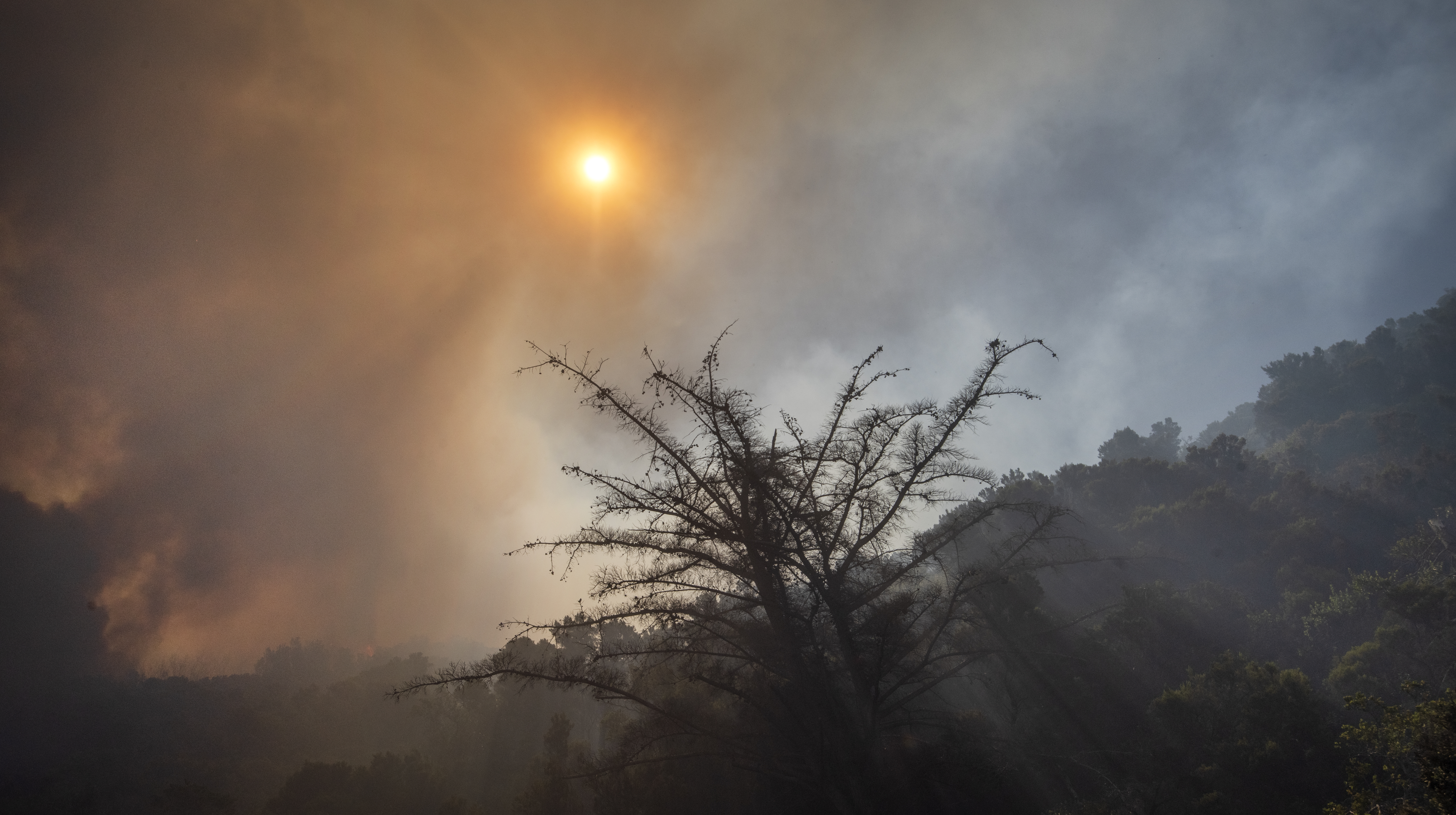
The sun in Kalk Bay is obscured by heavy smoke above Boyes Drive. (Photo: Brenton Geach)
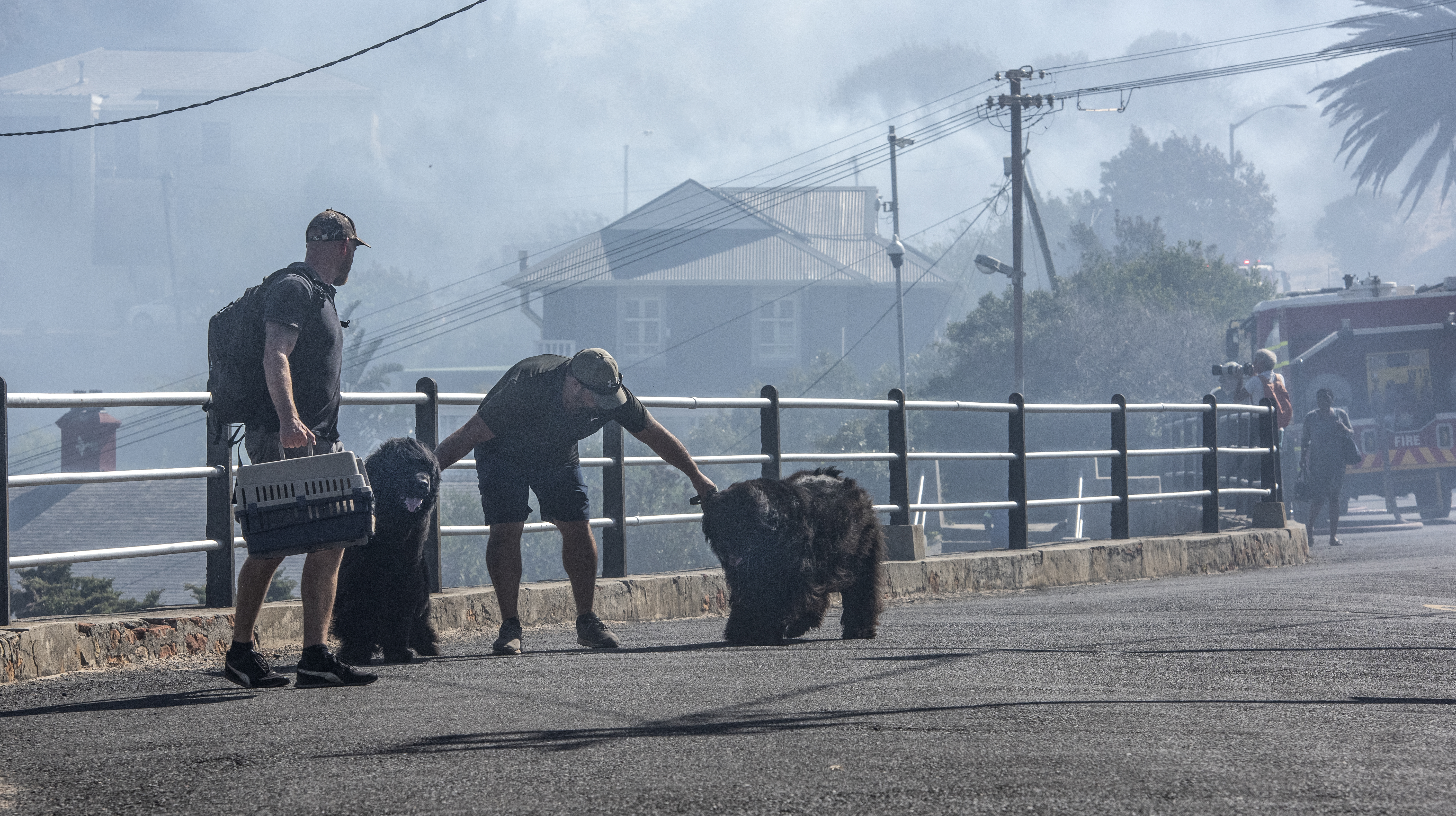
Residents leave as the smoke causes breathing problems for their pets. (Photo Brenton Geach)
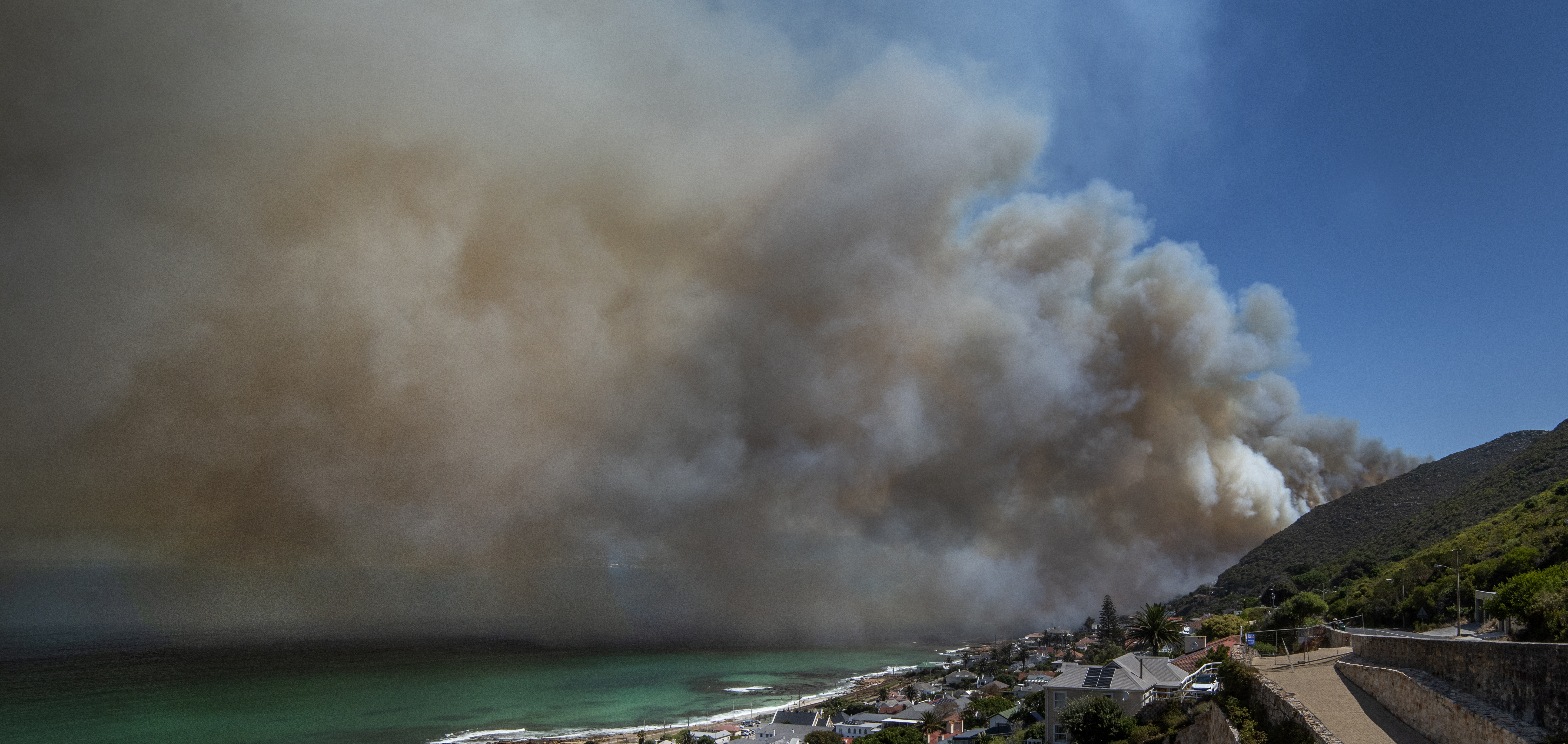
The fire above Kalk Bay, seen from St James, on Monday, 12 February 2024. (Photo: Brenton Geach)
The South African Weather Service (Saws) has warned that extremely high fire danger conditions are expected for Tuesday, 13 February, over the western and southern parts of Northern Cape, northeastern parts of Western Cape, central and southwestern parts of Free State, and the western parts of Eastern Cape.
A fierce Western Cape fire season
This year’s fire season in the Western Cape, which began on 1 December, has been notable for the many fierce and large wildfires that have blazed in the province.
Between 1 December and 31 January, 6,429 wildfires ignited in the province with an estimated total of 103,262 hectares of land burnt.
Our recently published Cape Infernos Part 1 explores the economic toll and scope of one of the most intense wildfire seasons in the Western Cape. Cape Infernos Part 2 explains why this Western Cape fire season has been so severe and looks at the vital lessons to be learnt from it.
Read more in Daily Maverick: Taking stock — staggering scale of Western Cape wildfires as fire season continues to rage
Since 1 December, the Western Cape government has spent more than R19-million on firefighting efforts.
On 1 February, the provincial government sought assistance from the National Disaster Management Centre to declare the wildfires in the province a provincial disaster. This declaration would grant the premier and the minister of finance the authority to reallocate funds as needed to sustain firefighting operations.
Last month, the Kluitjieskraal fire, the largest wildfire recorded in the Western Cape this year, ravaged the mountainous landscape of the Breede River Valley. Originating southeast of Wolseley on 22 January, it rapidly spread across 27,200 hectares over 11 days.
Climate change forecasts for the Western Cape, particularly Cape Town, indicate a worsening outlook for fire conditions in the coming years. This includes expectations of extended, hotter and drier summers, along with an increase in the frequency of southeasterly winds.
Research conducted by Zhongwei Liu, a PhD researcher at Coventry University, and Stefaan Conradie, a PhD student at the University of Cape Town, found that extreme fire weather had become around 90% more likely in a warmer world. DM
This is a developing story.

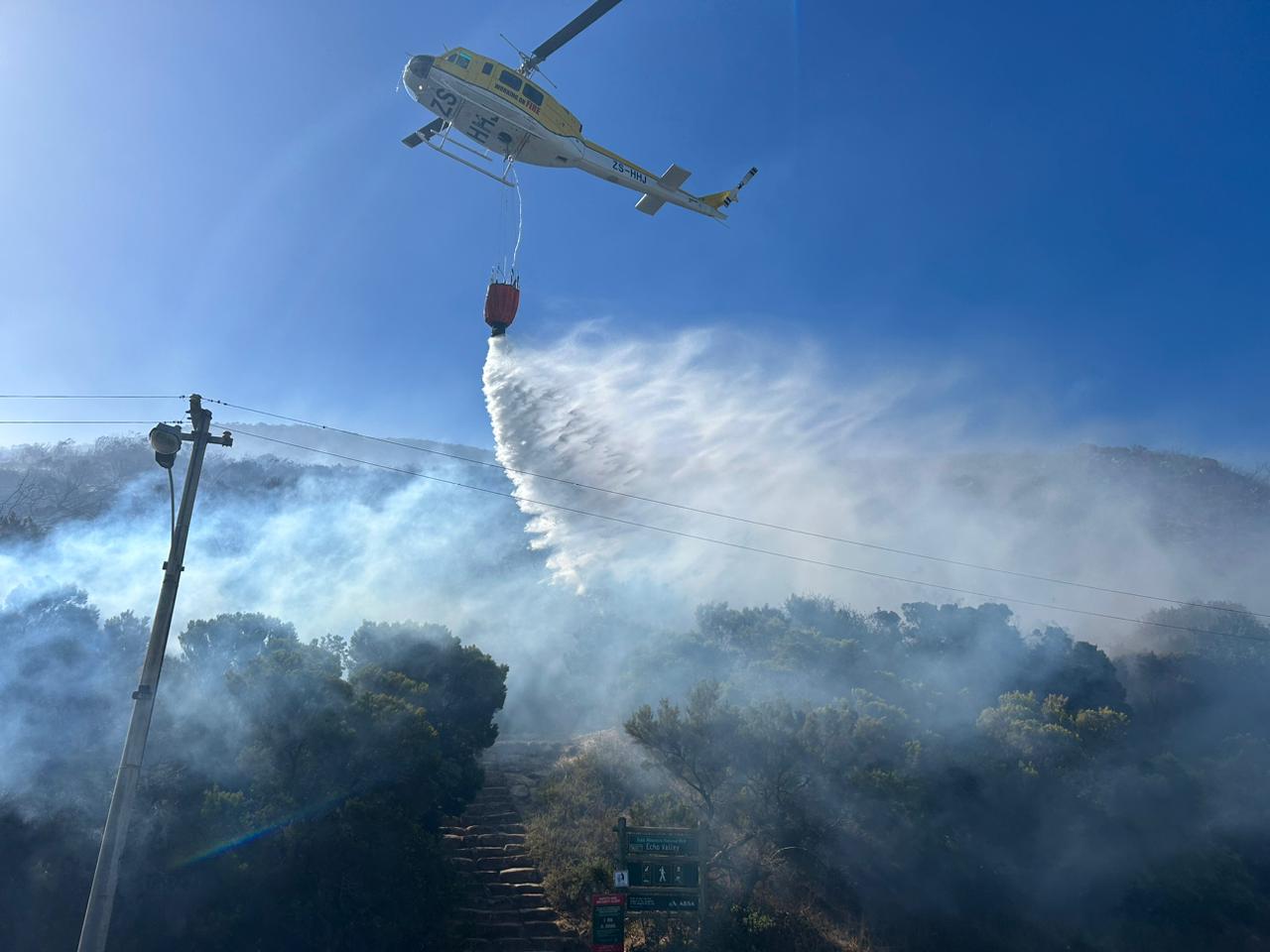



















 Become an Insider
Become an Insider
Please comment on the origins of the fire and that is was a second attempt at arson above kalkbay this year. This time more successful. Its incorrect to blame just the summer sun and wind on these fires
There will a be formal investigation by NCC Wildfire Services. There have been several reports in the last few weeks of a group of squatters living at the site where the fire started – chances are pretty good that it was an unattended cooking fire that flared when the wind picked up. More than 60% of wildfires in TMNP are man-made and by far the biggest culprits are illegal (overnight) worship gatherings and illegal squatters; both these groups also cause extensive damage to vegetation by cutting firewood. In the last few years, we’ve seen a marked increase in these cases coupled with increasing aggression when confronted by ordinary citizens. SANP-TMNP is constrained by the political sensitivity of these cases and legally has little stick (they can fine these guys; imagine how effective that is). The cost of annual firefighting and damage due to these cases runs into the tens/hundreds of millions (billions if you include the UCT fire) and the ecological damage is far worse in some areas.
This fire season should be the worst in years because the last 4 months, Oct – Jan, has been the driest in 35 years.
Arson? Seems like a lot of fires this year?
Negligence mostly.
Look for matches and something red
I have to agree – it does seem that there’s always something political behind disasters in DA strongholds!
If vagrants are forced to hide in the bush then there will be cooking fire accidents.
Negligence isn’t arson.
Instead of sending 2900 troops to the DRC give them a quick fire fighting course and use them to fight fires in our country, sounds like arson is going on cant always blame climate change. Where are those firefighters who went to Canada are they all back here ?
The firefighters all came back in September last year to fight fires in SA.
Yes it does seem a far better use of tax payers money to train our troops to fight fires rather than some unknown outside our borders. Charity begins at home, (not however as some politions believe into their own pockets)
Wow! What profound findings by 2 PhD students! It’s like saying people feel warmer in summer than they do in winter!
As a Kalk Bay resident I can confirm that no house burnt down.
The house with the burnt deck & kitchen (as shown in the picture above) is the main casualty in Lock Rd.
A huge thank you to the brave helicopter pilots and the ground crew for preventing the fire from crossing onto our properties, just on the other side of Trappieskop, yesterday.12 .02.2024
Where were all the arsonists in the 50,000 years before humans settled in the area ? While we have no shortage of looney arsonists (e.g, parliament) – negligence and basic physics remain the most common causes of wildfires in all parts of the world that are vulnerable – from Indonesia to the US west coast and beyond.
xxx
Interesting how quick people are to blame arsonists. Is it a case of climate denial or social exclusion? We’re seeing the effects of the ecological and climate emergencies resulting from humans being ever more uncaring and further estranged from the nature and planet on which we’re dependent.
Ever heard of Occam’s Razor?